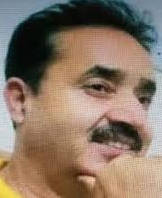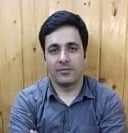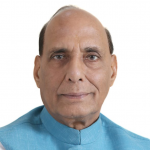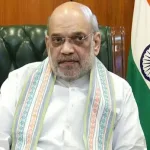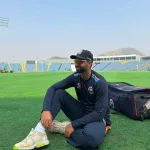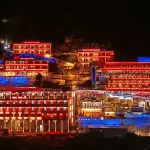In a world increasingly defined by the fast pace of disconnection — where silence is eclipsed by noise, and compassion often retreats into shadows cast by self-interest — Eid al-Adha arrives like a quiet revelation. Celebrated as the “Festival of Sacrifice,” its resonance is rooted in sacred tradition, yet its message stretches far beyond its scriptural inheritance. It reaches into the heart of contemporary society, gently reminding us of the moral fibre that binds human beings to one another — faith, humility, generosity, and above all, the imperative of inclusion.
At its essence, Eid al-Adha commemorates the timeless obedience of Prophet Ibrahim (AS), who, when tested by the Divine, displayed unwavering submission by preparing to sacrifice his son. Yet, in the modern world, the sacrifice does not dwell solely in the historical or the symbolic. It takes newer, subtler forms — forms that ask not for blood, but for presence; not for ritual alone, but for purpose.
It is easy, in this age of performative religion and hollow gestures, to overlook what lies at the heart of this sacred day. For Eid al-Adha is not a spectacle — it is a sacred rhythm, a pause that calls us back to the original question: what are we willing to give up for the sake of others? The animal sacrifice is governed by divine ethics — one-third for one’s own household, one-third for friends and relatives, and one-third for the poor. It is not merely a division of meat — it is a reimagining of abundance. It is the ritualized declaration that no feast is complete if the hungry remain forgotten.
In a time when income inequality divides societies like invisible borders, this idea of equitable distribution is revolutionary in its quiet elegance. When practiced with sincerity, it reclaims the festival from the grip of consumerism and returns it to the domain of the soul. It challenges the self-absorbed mind to remember those who eat only when others share. It tells the child in silk clothes that another child — barefoot, perhaps orphaned — too deserves joy. That is the radical tenderness of Eid al-Adha.
At the morning prayer, thousands gather beneath open skies. There are no pulpits raised above heads, no exclusive rows for the privileged. All are one. The monarch and the mason stand shoulder to shoulder, their foreheads kissing the same earth. Such a sight, fleeting as it may seem, reveals a democracy not crafted by law but by submission — a fraternity of faith, forged in humility.
And beyond the mosque walls, this fraternity ripples through alleys and neighborhoods. Community kitchens hum with activity. Volunteers deliver parcels of meat and food to homes where festivity might otherwise be silent. Neighbours embrace after months of silence. Grudges are dissolved over cups of kahwa. The social fabric, tattered by months of division, is momentarily mended by threads of empathy.
This spirit of togetherness is not confined to ritual or geography. Across cities and towns, Eid al-Adha has become a platform to affirm communal responsibility. Many now donate their offerings to humanitarian causes. Others offer their time and skills to serve in shelters, orphanages, and medical camps. These modern expressions of sacrifice are deeply aligned with the festival’s original call — to give that which is dear, not for gain, but for goodness.
And perhaps herein lies the most relevant interpretation of Eid al-Adha for our times: it is not about loss; it is about what we are willing to surrender in order to elevate our humanity. It is about letting go — of pride, of excess, of selfishness. In a culture that teaches us to accumulate, Eid teaches us to relinquish. To empty ourselves of entitlement. To make space — within our homes, our hearts, our conversations — for the ones who have long been excluded.
Inclusion, in this context, is not a borrowed word from global discourse. It is a spiritual imperative. It is born from the understanding that the Divine resides in every act of giving, in every small gesture that bridges loneliness, in every silent meal that becomes a celebration because it is shared. The beggar at the door, the widow in the next lane, the migrant with no family — these are not symbols of charity, but sacred presences that complete the festival. To forget them is to forget the very essence of sacrifice.
In homes across the valley and the plains, children awaken to the aroma of ‘yakhni’ and ‘tchaman’, elders recite takbirat, and courtyards echo with greetings. The scent of attar, the rustle of new clothes, the gleam of fresh currency notes gifted with trembling hands — these are not just traditions, they are memories in the making. Yet amidst the colour and celebration, Eid gently insists: let no one be left behind in this joy.
This is where Eid al-Adha transcends time. It is not frozen in ritual; it is alive in relevance. It speaks softly but firmly to a divided world: that true piety lies not in public display, but in private compassion. That inclusion is not a seasonal sentiment, but a way of living — one that asks us to see the divine not only in prayer, but in people.
As we move deeper into a century marked by crisis — climate, conflict, displacement — the values of Eid al-Adha return as guiding lights. Simplicity over extravagance. Sacrifice over selfishness. Community over isolation. Its message is not limited to a specific day; it is an ethic for all days. And perhaps the truest sacrifice we can offer is our indifference — laid down at the altar of shared humanity.
In a time when the world is desperate for compassion that is not curated, for faith that is not divisive, and for celebration that is not exclusive — Eid al-Adha offers us a vision. A vision not of uniformity, but of unity. A vision where generosity is not measured in weight, but in warmth. A vision where faith is not proved by rituals alone, but by the ability to open one’s heart and home to another. And in that inclusive act of giving, the sacred finds its truest reflection — not in the grandeur of the sacrifice, but in the grace of the one who shares.
(Author is RK Columnist and can be reached at: [email protected])


